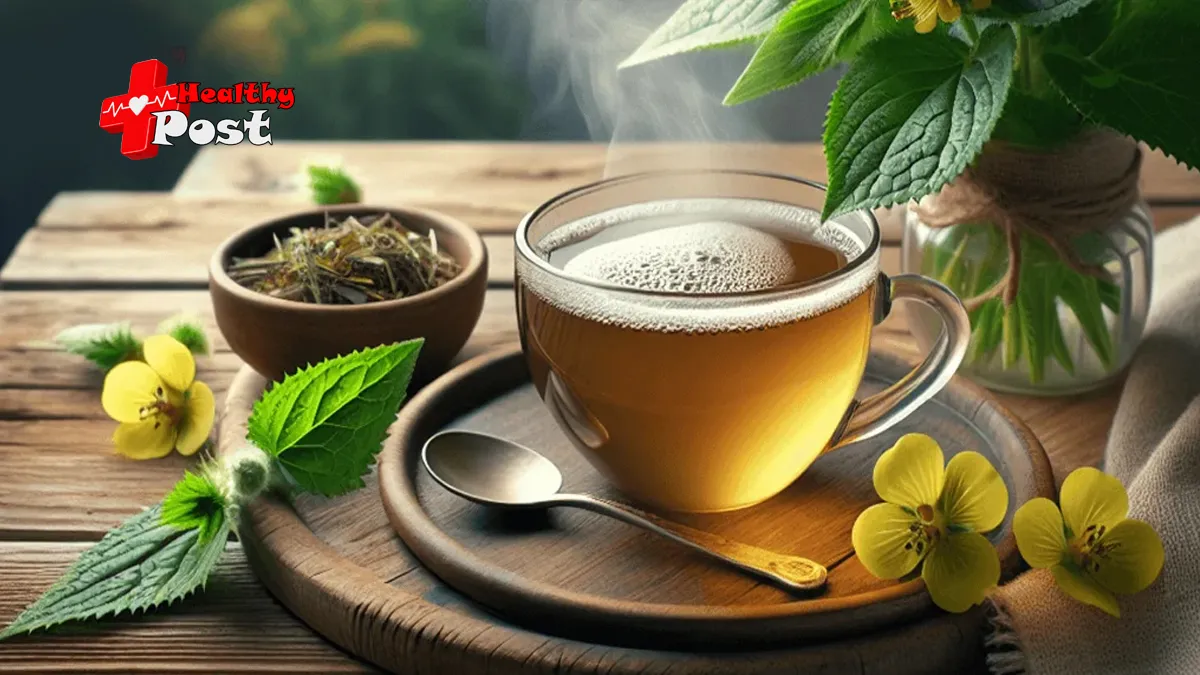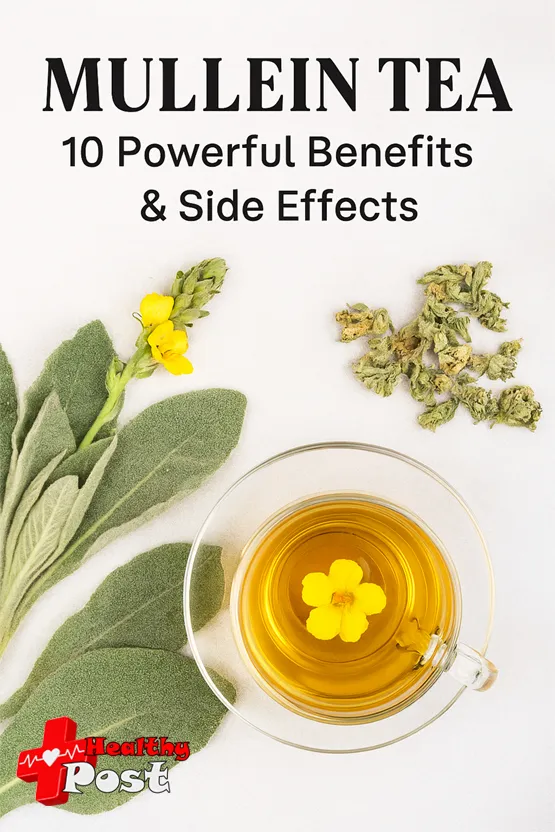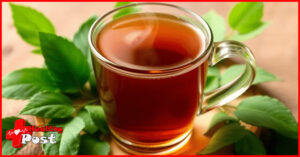
Mullein Tea: 10 Powerful Benefits for Your Wellness Routine
Your wellness routine does not have to be complicated to be effective.
Sometimes, a simple warm cup of mullein tea can offer exactly the kind of support your body is asking for.
Many people first discover this herbal infusion while looking for natural support for coughs, chest congestion, or seasonal breathing issues. Others are drawn to its gentle, calming presence in an evening routine. Whatever brings you here, you may be wondering what is fact, what is tradition, and how you can use this herb safely.
This article walks you through the key mullein tea benefits, possible risks, and practical tips for daily life. The aim is to help you feel informed, confident, and supported as you decide whether to invite this herbal ally into your own routine. This guide is written for real readers first, even when Rank Math SEO optimization works quietly in the background.
1. What Is Mullein Tea?
Mullein is a tall, fuzzy-leaved plant, known to herbalists as Verbascum thapsus.
It has a long history in traditional European and North American herbalism.
Mullein tea is usually made from the dried leaves, and sometimes the flowers.
The plant contains compounds such as mucilage, saponins, and flavonoids. These may help explain many of its traditional uses.
People have used mullein infusions for generations to support:
- Irritated or dry lungs
- Lingering coughs after colds
- Sore, scratchy throats
- General respiratory comfort
In most home kitchens, it shows up as an earthy, slightly sweet herbal tea.
It is not heavily aromatic, but many people find the flavor grounding and soothing.

2. Top 10 Mullein Tea Benefits for Everyday Wellness
No single herb is a cure-all.
Still, many people experience meaningful relief and comfort from regular use.
Here are ten commonly reported mullein tea benefits, supported by traditional use and emerging research.
1. Gentle Support for Respiratory Health
Mullein has long been associated with lung support.
The leaves contain soothing mucilage. This gel-like compound can coat irritated tissue.
Many people use this herbal tea when they feel:
- Dryness in the throat or chest
- Irritation from smoke or pollution
- Discomfort after a respiratory infection
For example, someone who works in a dusty environment may drink a cup after work.
They often describe the sensation as “softening” or “easing” in the chest.
2. Comfort for Coughs and Congestion
Traditional herbalists reach for mullein when a cough is dry, tight, or stubborn.
Its saponins may act as mild expectorants.
This means they can help the body move mucus more easily.
The aim is not to suppress a productive cough, but to make it less harsh and more effective.
At home, people often use it:
- During the tail end of a cold
- When a lingering cough keeps them awake
- Alongside steam inhalation or saline sprays
3. Soothing for Sore or Scratchy Throats
The same mucilage that comforts the lungs can help an irritated throat.
Warm, slowly sipped infusions can create a calming coating effect.
You might use it:
- Before speaking or singing for long periods
- After a day of talking or teaching
- When seasonal dryness makes swallowing uncomfortable
A simple example: a teacher drinks a mug before evening grading.
They often feel less scratchiness after a long speaking day.
4. Mild Anti-Inflammatory Support
Laboratory studies suggest mullein contains flavonoids and other compounds with anti-inflammatory actions.
While human trials are limited, traditional use aligns with these findings.
This herbal tea may offer gentle support in situations involving:
- Irritated respiratory tissue
- Minor digestive discomforts
- General inflammatory stress from daily life
It is not a replacement for prescribed medications.
Instead, think of it as a supportive part of a broader care strategy, under professional guidance.
5. Digestive Calm and Warmth
Some people find that mullein infusions ease mild digestive upset.
Warm herbal teas can relax smooth muscle and promote a sense of comfort.
You might notice benefits if you experience:
- Occasional bloating after meals
- Mild cramping connected to tension
- General digestive sluggishness
One practical example: sipping a small cup after a heavy dinner.
Many people report less fullness and more ease.
6. A Grounding Addition to Your Evening Routine
Mullein is not a sedative in the usual sense.
Yet, many people find the ritual of a warm, caffeine-free mug quite calming.
You can blend it with other relaxing herbs, such as:
- Chamomile
- Lemon balm
- Linden blossom
A quiet evening routine might include:
dim lights, a book, a blanket, and a slowly sipped mullein infusion.
These cues tell your body that it is time to rest.
7. Gentle Support for Smokers and Ex-Smokers
Some smokers and those who recently quit look for herbs that feel comforting to their lungs.
Mullein is often mentioned in this context.
The idea is not to undo damage.
Instead, it is to create a daily moment of lung-focused self-care.
Many people describe an emotional benefit.
They feel they are actively supporting their healing process with each cup.
8. Possible Antimicrobial Properties
Early research shows that mullein extracts may have mild antimicrobial actions.
These seem to target certain bacteria and viruses in laboratory settings.
This does not mean mullein tea can treat infections by itself.
However, it may add gentle support alongside medical care.
When you are unwell, always follow your clinician’s advice.
You can ask whether including this herbal tea is appropriate for you.
9. Versatile for Blending with Other Herbs
Mullein pairs well with many common wellness herbs.
This makes it easy to customize for your needs.
Popular blends include:
- Mullein with licorice and marshmallow for throat comfort
- Mullein with thyme for chest support
- Mullein with mint for post-meal digestion
Blending can smooth out the flavor and target specific goals.
If you are new to herbs, start with simple, two-herb combinations.
10. A Small, Consistent Ritual of Self-Care
Health is shaped by small, repeated choices.
Adding a daily herbal ritual can be an easy win.
A warm cup gives you:
- A moment to pause
- Time to listen to your body
- A sense of tending to yourself with care
Mullein can become a symbol of this intention.
That feeling alone can support emotional resilience and wellbeing.
3. How to Brew Mullein Tea for Best Results
Preparing this herbal tea well makes a real difference.
Done right, you get a smoother texture and better extraction of helpful compounds.
Choosing Your Herbs
Most people use dried mullein leaves.
You can also include the flowers when available.
Look for:
- A fresh, greenish color (not dull brown or gray)
- A clean, slightly earthy aroma
- Organic or unsprayed sources when possible
Avoid products that look dusty or smell stale.
If you are searching online, read reviews to gauge freshness.
Brewing Instructions
Here is a simple starting method. Adjust as needed for taste and comfort.
- Use 1–2 teaspoons of dried leaf per 8 oz (250 ml) of water
- Bring water to a gentle boil, then remove from heat
- Pour over the herb in a heat-safe vessel
- Cover and steep 10–15 minutes
- Strain very carefully through a fine filter or cloth
Straining is important.
Mullein leaves have tiny hairs that can feel scratchy if not removed.
Suggested Serving Ideas
You can enjoy this herbal infusion:
- Plain and unsweetened
- With a small amount of honey for throat support
- Blended with lemon for a brighter flavor
- Mixed with other herbs as part of a custom blend
Start with one cup a day.
Notice how your body responds before increasing the amount.
4. Quick Guide: Benefits and Everyday Uses
The table below summarizes common wellness goals and how this tea may help.
| Wellness Goal | How This Herbal Tea May Help | Simple Daily Idea |
|---|---|---|
| Respiratory comfort | Soothes irritated tissue and may ease dry coughs | One warm cup after work in dusty or polluted environments |
| Throat relief | Coats a scratchy throat with soothing mucilage | Sip slowly before bed during cold season |
| Digestive ease | Warmth and relaxation can reduce mild cramping | Drink a small mug after heavier meals |
| Stress reduction | Ritual and warmth encourage relaxation | Include in a quiet evening wind-down routine |
| General wellness | Provides a gentle, hydrating herbal option | Replace one daily caffeinated drink with a mullein infusion |
Use this table as a flexible guide, not strict rules.
Adjust timing and quantity to fit your own lifestyle and needs.
5. Understanding Mullein Tea Side Effects and Safety
Most healthy adults tolerate mullein infusions well.
However, every body is different, and caution is wise.
When people search phrases like “mullein tea side effects,” they are often concerned about safety.
Here is what current knowledge and traditional practice suggest.
Possible Side Effects
Potential side effects may include:
- Mild stomach upset, especially with very strong brews
- Nausea in sensitive individuals
- Throat irritation if the tea is not well strained
If you notice discomfort, reduce the dose or stop use.
Listen carefully to your body’s signals.
Allergies and Sensitivities
Some people may be allergic to plants in the figwort family.
If you have a known allergy in this group, use caution.
Signs of an allergic reaction can include:
- Itching or rash
- Swelling of lips, face, or throat
- Difficulty breathing
These symptoms require urgent medical attention.
Seek emergency care right away if they appear.
Who Should Use Extra Caution
You should talk to a qualified healthcare professional before using this herb if you:
- Are pregnant or breastfeeding
- Have chronic lung or heart conditions
- Take prescription medications, especially for breathing or blood pressure
- Have a history of severe allergies or asthma
In these cases, supervision ensures that this herb fits safely into your plan.
6. How Much and How Often Should You Drink It?
There is no single agreed clinical dose for everyone.
Most herbal traditions recommend moderation and gradual adjustment.
A common starting place is:
- 1 cup per day for a few days
- Then increase to 2–3 cups per day if well tolerated
Use short breaks.
For example, drink it regularly for two weeks, then pause for several days.
Long-term daily use should be guided by a practitioner.
This is especially important if you have ongoing health issues.
7. How to Find Quality Mullein Tea Near You
Many people type “mullein tea near me” into search engines when they first hear about this herb.
Finding a trustworthy source matters as much as learning how to use it.
Local Health Stores and Herbal Shops
Start with:
- Local health food stores
- Community herbal apothecaries
- Co-op groceries with bulk herb sections
Ask staff about:
- Sourcing practices
- Organic or wildcrafted options
- How quickly their stock turns over
Freshness and responsible harvesting are key signs of quality.
Online Stores and Reputable Brands
If you cannot find mullein tea nearby, online options may help.
Look for sellers who:
- Provide clear botanical names and ingredient lists
- Offer organic certification where possible
- Share details about testing for purity and contaminants
Read reviews with a critical eye.
Notice comments about taste, freshness, and customer service.
Home Harvesting (For Experienced Foragers Only)
Some people prefer to harvest and dry their own mullein.
This should only be done if you are skilled at plant identification.
Key safety points:
- Avoid areas near roads, pollution, or sprayed fields
- Harvest from clean, healthy plants
- Dry thoroughly before storage to prevent mold
If you are new to foraging, learn from an experienced guide.
Never consume a plant unless you are completely certain of its identity.
8. Who Might Benefit Most from Mullein in Their Routine?
This herbal tea is not just for when you feel unwell.
Certain people may find it especially helpful with regular, mindful use.
You might consider it if you:
- Live in a city with noticeable air pollution
- Work in dusty or smoky environments
- Experience frequent seasonal respiratory discomfort
- Want a gentle, non-caffeinated evening drink
- Are building a more intentional self-care ritual
Remember, it is one piece of a larger wellness picture.
It cannot replace sleep, movement, nutrition, or prescribed treatments.
9. Simple Ways to Make It Part of Your Wellness Ritual
Consistency often matters more than intensity.
Small, sustainable habits are easier to maintain than drastic changes.
Here are a few approachable ways to weave this herbal infusion into your life.
Morning Check-In Ritual
Replace one morning coffee with a warm herbal mug.
Use that time to notice how your lungs, throat, and body feel today.
This daily check-in can guide your choices.
You may choose lighter exercise, extra hydration, or a more restful pace.
Afternoon Pause for Breath
Set aside ten minutes mid-afternoon.
Make a cup of this tea and step away from screens.
Focus on slow, gentle breathing as you sip.
This helps reset your nervous system and reduce stress buildup.
Evening Wind-Down Practice
Prepare a small pot after dinner.
Turn off bright lights, and choose one quiet activity.
The repeated association of this herb with calm can condition relaxation.
Over time, your body may shift into “rest mode” more easily.
10. Frequently Asked Questions About Mullein Tea
Is mullein tea safe to drink every day?
Many healthy adults drink it regularly without problems.
However, daily long-term use should be discussed with a healthcare professional, especially if you have chronic conditions or take medications.
How long does it take to feel the benefits?
Some people notice throat or chest comfort within a single cup.
For more general wellness support, give it several days to a few weeks of consistent, moderate use.
Can children drink this herbal tea?
Herbal use in children requires extra caution.
Always consult a pediatrician or qualified herbal practitioner before giving mullein or any herb to a child.
Can I drink it if I am pregnant or breastfeeding?
Safety data in pregnancy and breastfeeding is limited.
Do not use mullein during these times unless your midwife, obstetrician, or healthcare provider clearly approves it.
What if I cannot find mullein tea nearby?
If you cannot locate it in local shops, look for reputable online sources.
Choose brands that share clear sourcing information, testing practices, and complete ingredient lists.
Does this tea interact with medications?
Few interactions are documented, but the absence of evidence is not a guarantee of safety.
If you take prescriptions, especially for lungs, heart, or blood pressure, speak with your clinician before adding new herbal teas.
Conclusion
Inviting mullein tea into your wellness routine can be a gentle, meaningful shift.
Its traditional roles in respiratory comfort, throat soothing, and daily self-care align well with modern needs and busy lives.
When you choose high-quality herbs, brew them mindfully, and respect your body’s signals, this simple plant can become a steady, reassuring companion.
Whether you find it in a small local shop, order it from a trusted source, or blend it into custom infusions at home, the deeper value lies in the ritual you create around it.
Use what you have learned here to make informed, thoughtful choices.
If this herb feels like a good fit, talk with your healthcare provider, then start with one warm cup and see how your body responds.
From there, you can decide how this traditional remedy belongs in your personal path toward steadier breath, calmer evenings, and a kinder relationship with your own wellbeing.


3 thoughts on “Mullein Tea: 10 Powerful Benefits for Your Wellness Routine”